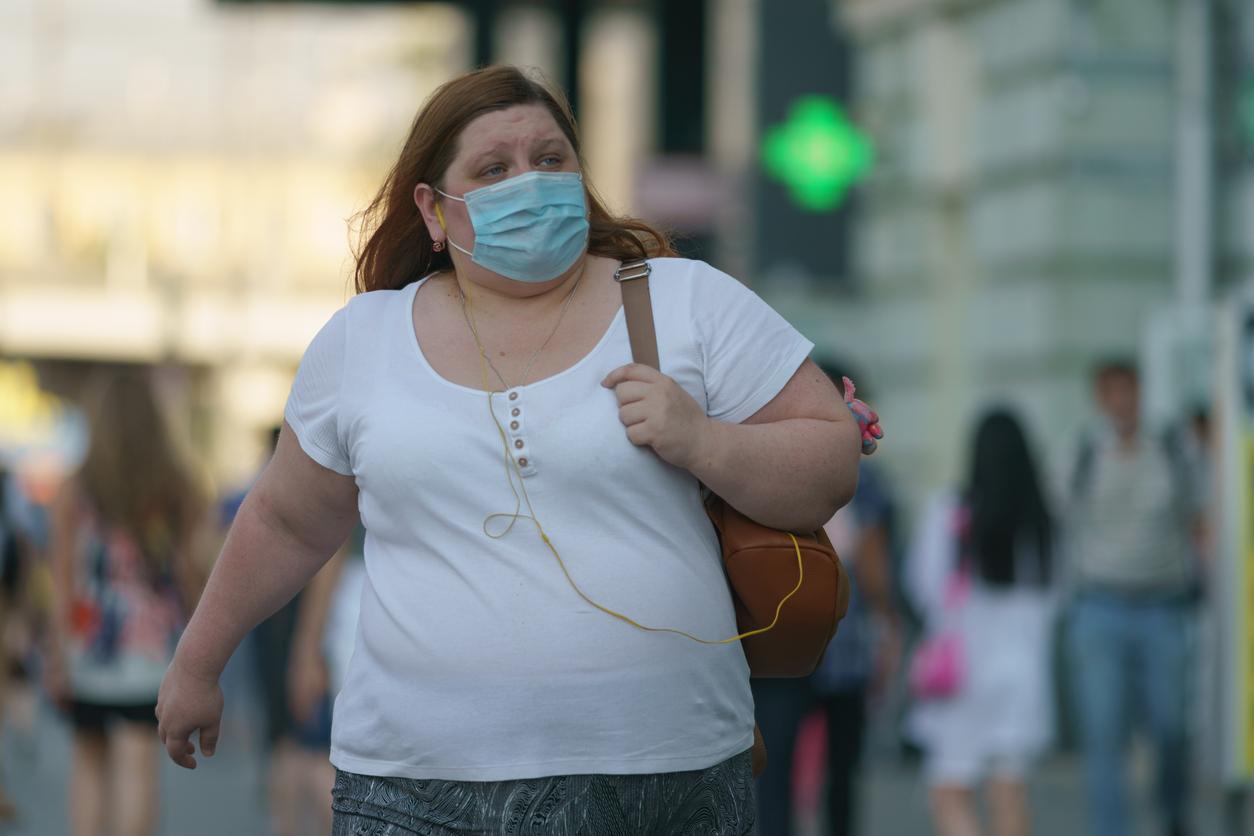COVID-19 vaccination protected people of all body sizes from hospitalization and death—although vaccinated people with a low or high body mass index (BMI) were at greater risk, according to a study of adults in England published yesterday in The Lancet Diabetes & Endocrinology.
University of Oxford researchers led the study, which involved 9,171,524 adult primary care patients in England with available body mass index (BMI) data from Dec 8, 2020 (when the COVID-19 vaccine first became available in the United Kingdom), to Nov 17, 2021. Average patient age was 52 years, and average BMI was 26.7 kilograms per meter squared (kg/m2) (overweight).
Elevated risk at low, high BMIs
Of the 9,171,524 patients, 566,461 tested positive for COVID-19 during follow-up, 32,808 were hospitalized, and 14,389 died. Among all patients, 19.2% were unvaccinated, 3.1% had received one vaccine dose, 52.6% had received two doses, and 25.0% had had three doses at least 14 days before enrollment.
By the end of the study period, 23.3% of healthy-weight participants, 32.6% of the underweight group, 16.8% of overweight participants, and 14.2% of the obese group remained unvaccinated. Over 80% of people aged 40 and older who were overweight or obese had received two or three COVID-19 vaccine doses, compared with 70% to 83% of their underweight peers.
While vaccine protection varied significantly across BMI categories, overall protection against severe infection was high against hospitalization, with an odds ratio [OR] for underweight of 0.51 (95% confidence interval [CI], 0.41 to 0.63), an OR for healthy weight of 0.34 (95% CI, 0.32 to 0.36], an OR for overweight of 0.32 (95 CI, 0.30 to 0.34), and an OR for obesity of 0.32 (95% CI, 0.30 to 0.34).
Similarly, ORs for death were 0.60 for underweight (95% CI, 0.36 to 0.98), 0.39 for healthy weight (95% CI, 0.33 to 0.47), 0.30 for overweight (95% CI, 0.25 to 0.35), and 0.26 for obesity (95% CI, 0.22 to 0.30).
While vaccinated underweight participants were at about half the risk of hospitalization or death than unvaccinated people with the same BMI, those with healthy or high BMIs were about 70% less likely to be hospitalized than their unvaccinated peers. Participants with healthy or high BMIs were roughly two-thirds less likely to die after a second vaccine dose.
Among the vaccinated group, the risk of severe disease at low and high BMIs was significantly higher than at healthy BMIs. For instance, a BMI of 17 was tied to a 50% higher risk of hospitalization than a healthy BMI of 23, while a very high BMI of 44 was associated with three times the risk of hospitalization than a healthy BMI.
Role of impaired immune responses
The researchers said that the results could be attributed to an altered immune response in people with higher BMIs and that thinner participants may have impaired immunity because of frailty, cancer, or other conditions linked to low body weight. "These results suggest the need for targeted efforts to increase uptake in people with low BMI (<18.5 kg/m2), in whom uptake is lower and vaccine effectiveness seems to be reduced," they wrote.
In a Lancet news release, lead author Carmen Piernas, PhD, said that the results are encouraging for people with obesity, who are at increased risk of poor COVID-19 outcomes. "Our results provide reassurance to people with obesity that COVID-19 vaccines are equally as effective for them as for people with a lower BMI, and that vaccination substantially reduces their risk of severe illness if they are infected with COVID-19," she said.
In a related commentary, Annelies Wilder-Smith, MD, PhD, and Annika Frahsa, PhD, both of the University of Berne in Switzerland, said that obesity and COVID-19 are a risky combination, as are obesity and other infectious diseases such as the flu.
"Furthermore, people with obesity in the UK have also been affected by the pandemic lockdown measures with increased overeating, reduced physical activity behaviour, and increased barriers to weight management," they wrote. "Tackling obesity as a societal problem now will help mitigate the disastrous consequences of the current COVID-19 pandemic and those of future pandemics."





















